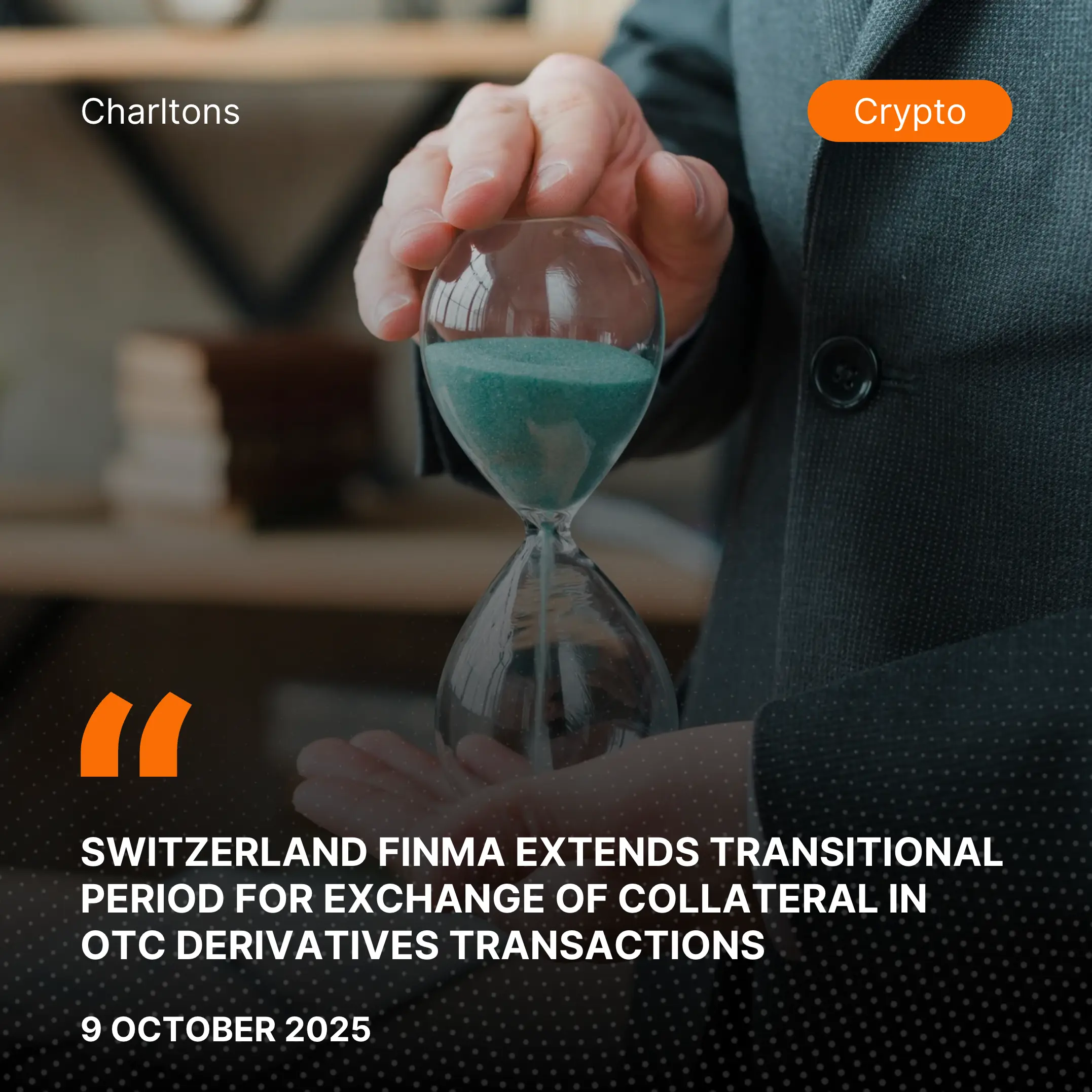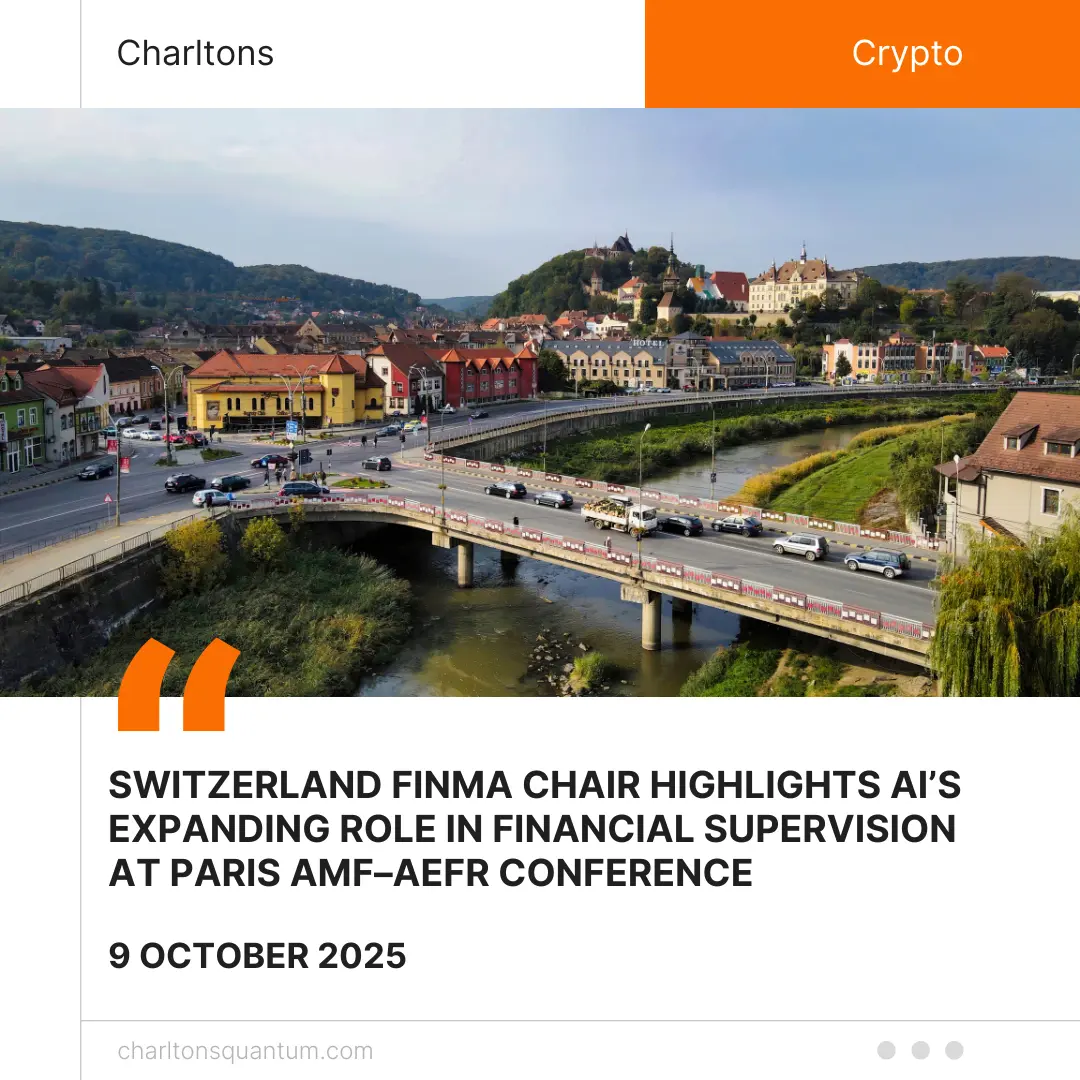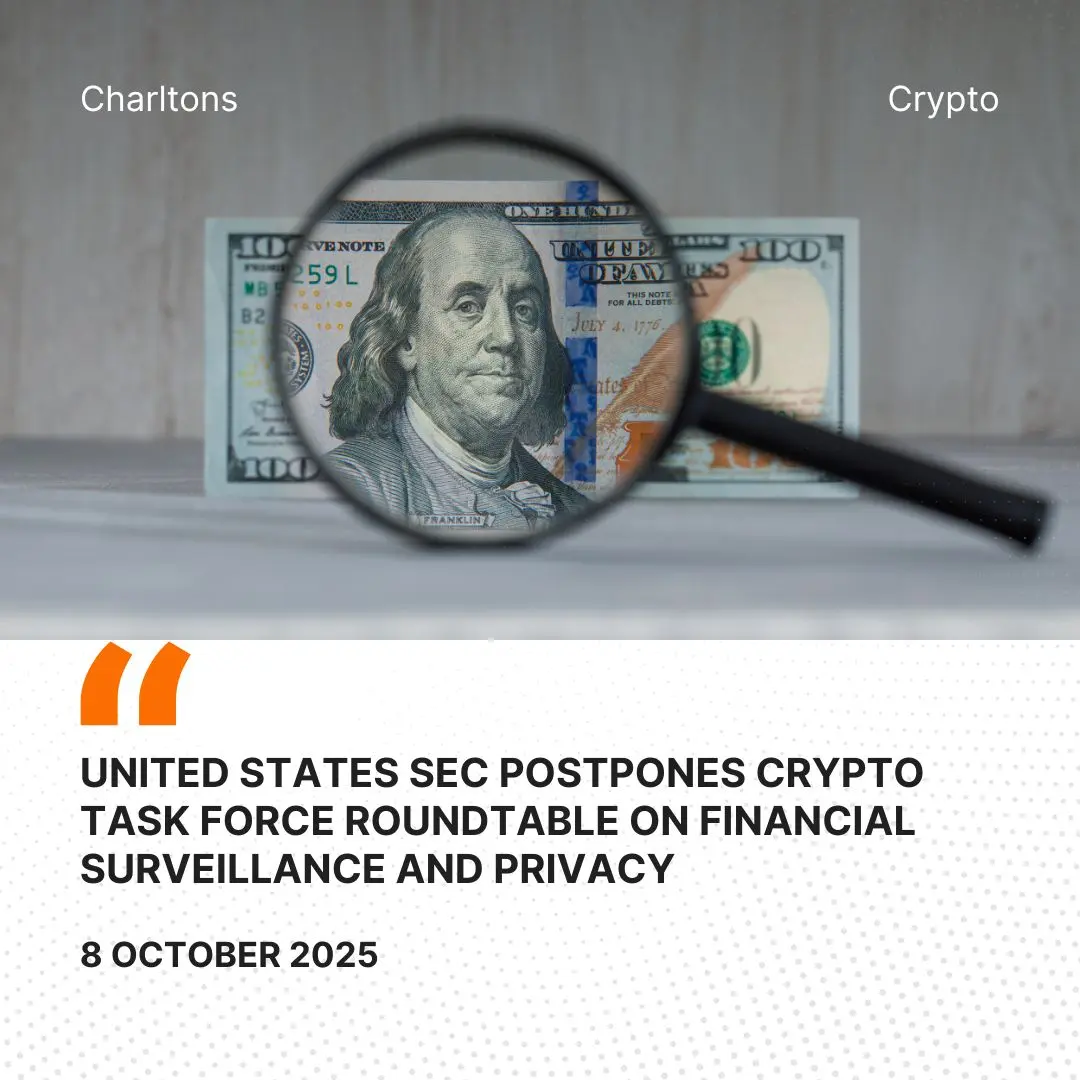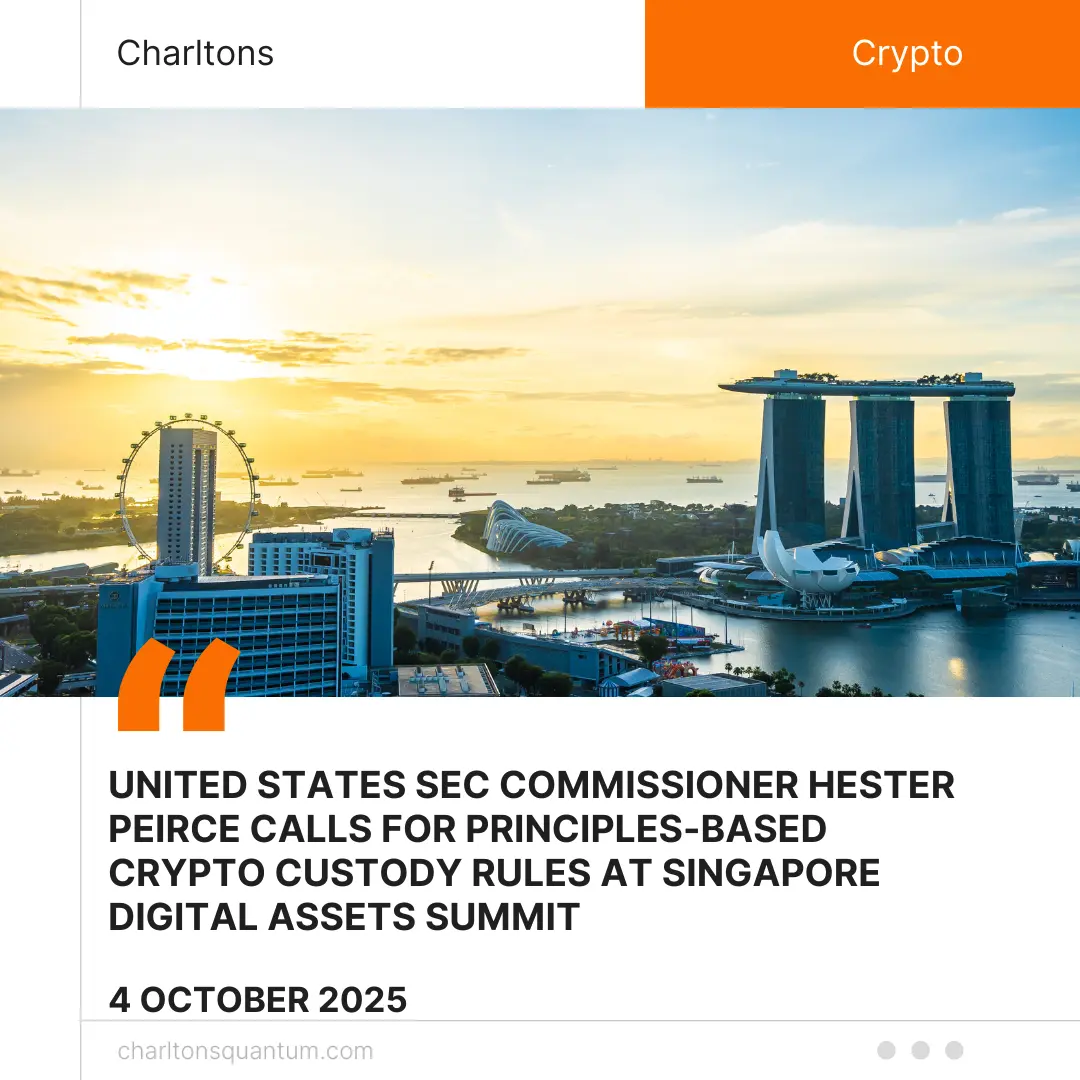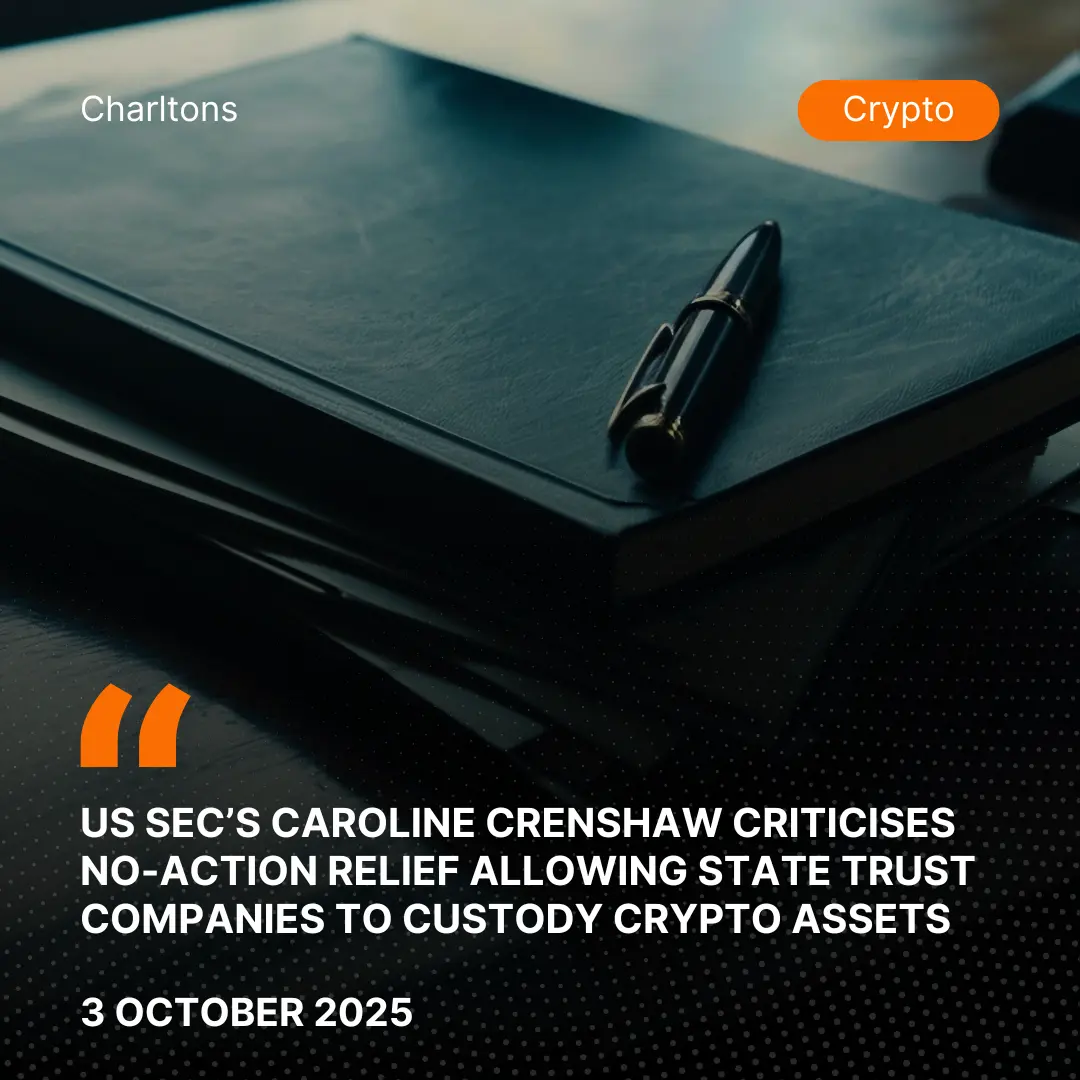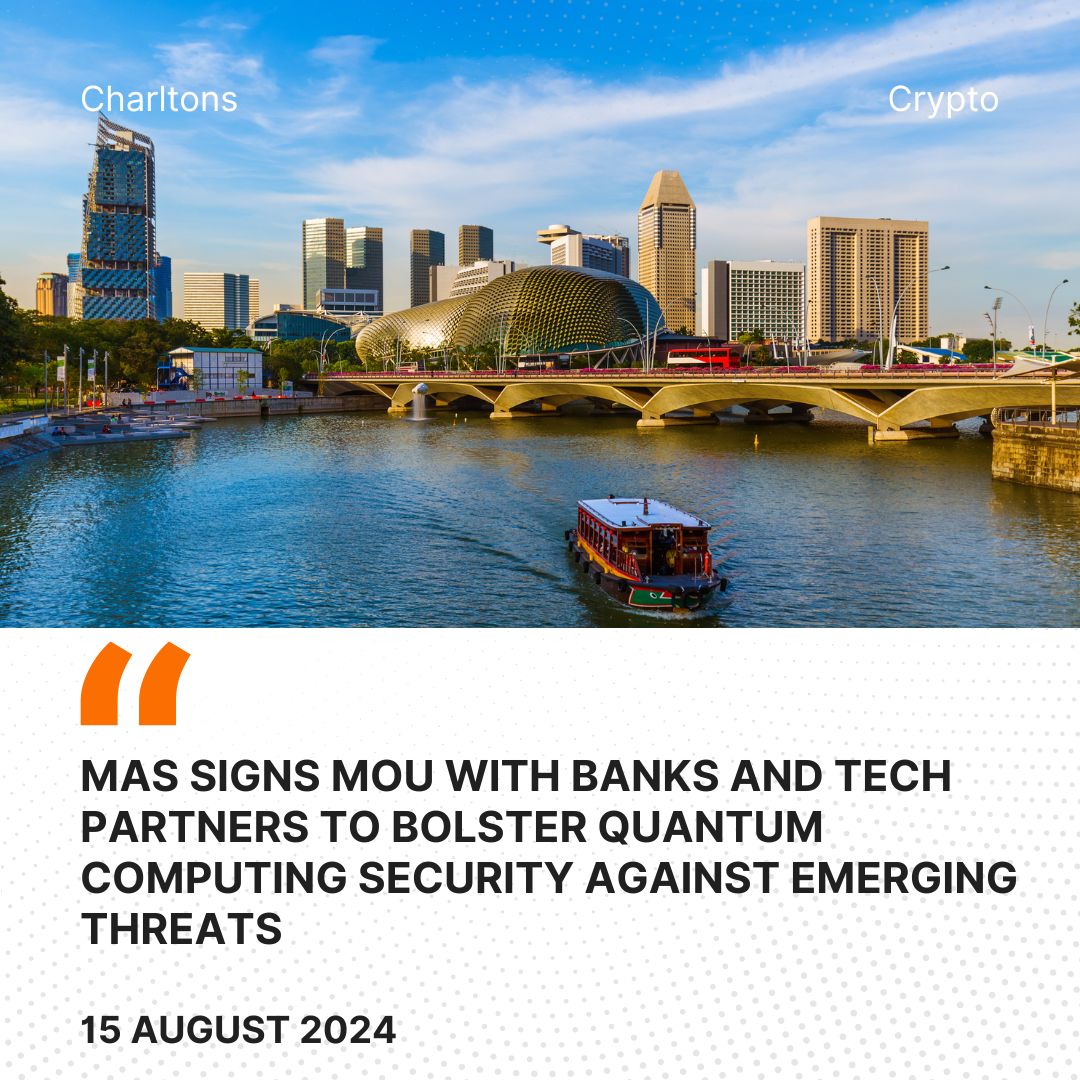
On 14 August 2024, the Monetary Authority of Singapore (MAS) signed a Memorandum of Understanding (MoU) with major banks and financial institutions to reinforce the country’s financial sector against potential cybersecurity threats from quantum computing.
This MoU, which involves collaboration with major banks like DBS, HSBC, OCBC, UOB, and technology partners SPTel and SpeQtral. The companies involved in this initiative represent a cross-section of Singapore’s financial and technological leadership. DBS, HSBC, OCBC, and UOB are among the largest and most influential banks in the region, while SPTel and SpeQtral bring cutting-edge technological expertise to the table.
The initiative follows the announcement of the National Quantum Strategy by Deputy Prime Minister Heng Swee Keat on 30 May 2024 and builds on MAS’s commitment, announced on 18 July 2024, to allocate an additional S$100 million under the Financial Sector Technology and Innovation Grant Scheme (FSTI 3.0) to support the development of quantum and artificial intelligence (AI) technologies in the financial sector.
Under the framework of this MoU, MAS and the participating institutions will engage in proof-of-concept trials using Quantum Key Distribution (QKD) technology. These trials are intended to rigorously test the viability and effectiveness of QKD in securing financial communications, leveraging controlled sandbox environments to simulate real-world scenarios. A key focus of the trials will be validating QKD’s security features, such as its capacity to detect eavesdropping and prevent unauthorized access or tampering with encrypted data.
The MoU further emphasizes the importance of knowledge exchange among all participants, ensuring that the financial sector is well-prepared for the transition to quantum security solutions. By fostering enhanced technical competencies, this collaboration aims to equip institutions with the expertise necessary to implement and manage quantum-safe communications effectively.
What is Quantum Computing? It is a type of computation that harnesses the principles of quantum mechanics, the fundamental theory in physics that describes nature at the smallest scales of energy levels of atoms and subatomic particles. Unlike classical computers, which use bits as the smallest unit of information (either 0 or 1), quantum computers use quantum bits, or qubits.
Qubits can exist in multiple states simultaneously, thanks to quantum phenomena like superposition and entanglement. This allows quantum computers to perform complex calculations much more efficiently than classical computers by processing a vast number of possibilities simultaneously. Quantum computing holds the potential to revolutionize fields like cryptography, material science, medicine, and artificial intelligence, but also poses significant challenges, especially in cybersecurity, as it can potentially break many of the encryption methods currently used to secure data.
This capability could render existing encryption methods, especially asymmetric cryptography, vulnerable to being compromised. As a result, the security of financial transactions, data exchanges, and digital signatures—cornerstones of the financial system—are at risk.
On 20 February 2024, MAS published its advisory to mitigate these risks and outlined several key actions that FIs should undertake. First is the development of “crypto-agility,” which refers to the ability to seamlessly transition from current cryptographic algorithms to post-quantum cryptography (PQC).
Second, MAS recommends that FIs explore QKD technology. QKD uses quantum mechanics to securely distribute encryption keys, offering a potential solution for maintaining secure communication channels in the quantum era.
Further, MAS advises FIs to continuously monitor the latest advancements to stay ahead of potential cybersecurity threats. Moreover, it is important for senior management and relevant stakeholders within FIs to understand the risks posed by quantum technology and the importance of transitioning to quantum security solutions.
Moreover, FIs should maintain a detailed inventory of their cryptographic assets. This inventory should identify vulnerable assets, including details on cryptographic algorithms, key lengths, and the systems they protect, allowing FIs to prioritize the migration to quantum-resistant encryption methods. Additionally, FIs should classify their IT and data assets based on sensitivity and risk exposure to ensure that the most critical assets are protected first. Assessing whether existing systems can support necessary upgrades is also crucial to facilitate a smooth transition.
MAS further emphasizes the importance of building technical competency among staff to manage the shift to quantum security solutions effectively. This includes reviewing and updating internal policies to align with the latest quantum security requirements. FIs are also strongly encouraged to conduct proof-of-concept trials with quantum security technologies, which will help them understand the practical challenges of implementing these solutions and prepare adequately for the transition.
The leaders of the institutions involved in the recent MoU with MAS have expressed strong support for the initiative. Mr. Eugene Huang, Group Chief Information Officer at DBS; Ms. Tancy Tan, Chief Operating Officer at HSBC Singapore; Mr. Praveen Raina, Head of Group Operations & Technology at OCBC; Mr. Albert Kho, Head of Group Retail and Channels Technology and Operations at UOB; Mr. Lum Chune Yang, Co-Founder and Chief Executive Officer of SpeQtral; and Mr. Titus Yong, Chief Executive Officer of SPTel, all praised the collaborative effort to address the cybersecurity challenges posed by quantum computing.
They highlighted the critical importance of MAS’s proactive measures in safeguarding the financial sector. The leaders emphasized the MoU as a pivotal step towards future-proofing Singapore’s financial services, with a focus on innovation, security, and resilience. The commitment to exploring QKD and enhancing the sector’s technical capabilities was recognized as essential for maintaining a robust and secure financial environment in the face of emerging quantum threats.
(Source: https://www.mas.gov.sg/news/media-releases/2024/mas-collaborates-with-banks-and-technology-partners-on-quantum-security, https://www.mas.gov.sg/-/media/mas-media-library/news/media-releases/2024/annex-a—quotes-from-the-industry.pdf, https://www.pmo.gov.sg/Newsroom/DPM-Heng-Swee-Keat-at-the-Asia-Tech-x-Singapore-2024-Opening-Ceremony, https://www.mas.gov.sg/-/media/mas-media-library/regulation/circulars/trpd/mas-quantum-advisory/mas-quantum-advisory.pdf)

